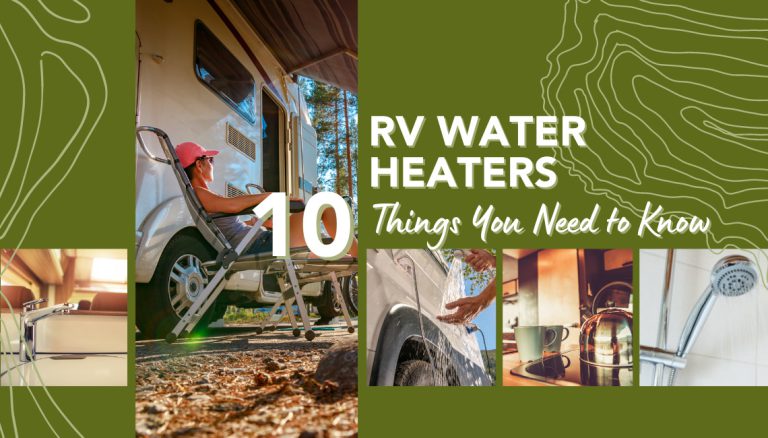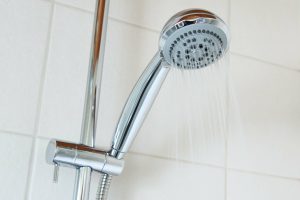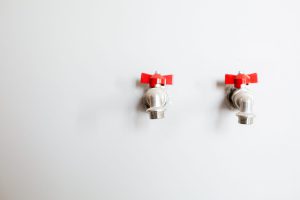
 Your RV hot water heater is a pretty important piece of equipment. It’s the gadget that allows you to utilize your RV’s plumbing system as you do at home, complete with comfortable showers, hot water for doing the dishes, and nice warm suds to wash your hands with.
Your RV hot water heater is a pretty important piece of equipment. It’s the gadget that allows you to utilize your RV’s plumbing system as you do at home, complete with comfortable showers, hot water for doing the dishes, and nice warm suds to wash your hands with.
Since you probably don’t want to forego any of those features, knowing a thing or two about your RV hot water tank is a good idea! Learing how to properly use a hot water heater in your camper will help you ensure the heater stays in proper working order for many years and camping trips to come — and could also help you avoid spending a fortunate at the local RV repair shop.
In this post, we’ll walk you through some of the top-ten need-to-know facts about RV water heaters, from basics like their size to figuring out how to properly get it ready for storing and winterizing. We’ll also touch on the upgraded tankless water heater technology, which can help you and your family enjoy endless hot water for leisurely showers — which is especially helpful if you’re on the road full time!
RV Water Heaters: 10 Things to Know
As with just about every other component of your RV, it’s good to have some knowledge of what’s going on inside your RV’s sidewall. Whether you’re in the market for a new one, or are just brushing up on your RV knowledge, here are ten important things you should know about the water heater in your RV.
- There are three main ways to heat the water in a hot water tank for an RV: propane, electricity, or heat from the engine. Electricity (or fuel with an electric ignition) is usually the most convenient because you don’t have to worry about a pilot light going out; just switch on the heater from inside your RV, and in a short time, you’ll have hot water. However, using the heat from your engine for hot water is most economical. The engine’s going to get hot anyway when you’re driving, so it’s nice to be able to put that energy to good use. The downside is that if the engine is off for a while, you may find yourself with a tank of tepid water.
- RV water heater tanks vary in size. Most common are 6-gallon or 10-gallon RV water heaters, though you’ll find small 4-gallon ones as well as much larger 16-gallon versions. Generally, the more people who are camping, the bigger the tank you’ll need. Otherwise, you run the risk of depleting your supply before everyone’s had a chance to shower.
- The main manufacturers of tank-based RV water heaters are Atwood and Suburban.
- The tanks of RV water heaters are much smaller than those of home water heaters. A small home heater is 40 or 50 gallons, but as mentioned above, an RV water heater maybe just six or 10. This means that you need to be more conservation-minded when using hot water in an RV. You really can’t linger in the shower! You’ll either need to turn off the hot water while you’re soaping and shampooing, or you’ll need to move quickly. Take too long, and that last rinse will be a chilly one.
- Unless you go tankless! On-demand RV water heaters use a heat exchanger rather than a storage tank. One great manufacturer is Girard, and while they cost a bit more than a tank-based heater, the huge benefit is that you’ll never run out of hot water.
- If you’re going to replace the water heater in your RV, keep in mind that not all systems are the same size. Before you start shopping, you’ll need to check the size of the opening in the sidewall: the height, the width, and the depth. You may want to replace what you’ve got with a bigger tank, but if there isn’t room for one in your RV, that’s something you should know before you make your purchase. After all, you can’t put a square peg in a round hole!
- If you’ll be storing your RV for a while, you’ll want to drain the water tank before you lock the door. If you’re storing it during cold months, it’s a good idea to winterize the pipes so they don’t freeze, crack, and cause problems the first time you head back out in the spring. Similarly, water left in your RV’s hot water tank can freeze, causing irreparable damage to the unit. If your water heater has a bypass valve, use it during winter storage. Details on how to do this should be in your RV owner’s manual.
- Don’t forget to turn off the bypass valve when you get back in your RV, once the winter’s over. You want to make sure the tank fills back up before you head out. Heating up the tank without water in it could mean serious damage.
- To avoid hard-water corrosion inside the tank, install an anode rod. This way, the corrosion will eat away at the rod instead of your tank. They’re easy to install, and you’ll want to check them from time to time. When the rod looks really corroded, remove it and install a new one. Anode rods are relatively inexpensive — generally under 20 bucks — but using one could significantly extend the life of your hot water tank. (And RV hot water heaters, on the other hand, are not so affordable to replace — which we’ll get to in just a moment!)
- If your RV water heater is hooked up and working, but you can’t get the water hotter than lukewarm to come out of your shower or faucet, check to make sure that the hot and cold faucets to your outside shower or water line are off. Leaving them on can cause the hot and cold water to mingle, and can prevent truly hot water from running inside the RV.
RV On Demand Water Heater
Most RV water heaters hold either 6 or 10 gallons of water. That gets used up pretty quickly when several people need to shower! With an on demand hot water heater for RV, you get the water you need, heated only when you need it.
A water heater that uses a tank has to heat all the water in that tank, but since an on demand RV hot water heater only heats the water you need, you save fuel by not heating extra water. It doesn’t have to keep unused water at a set temperature, waiting for you to use it, and therefore using less propane overall.
An RV Instant Hot Water Heater Means You Don’t Need a Storage Tank
Save room in your rig! Since an on demand water heater for RV is tankless, you don’t need to take up room with a water tank.
Tankless hot water heaters are available as electric units and propane units. It is basically up to the buyer to decide which type is the right one for them. Tankless RV hot water heaters are quieter than propane hot water heaters.
Good Options For On Demand Water Heaters For RV
The following RV on demand hot water heaters are all very popular, with great reviews:
- Rheem Performance 24 kw Self-Modulating 4.6 GPM Electric Tankless Water Heater
There are several places you can purchase a tankless water heater for your RV. Your RV dealer may have them and be able to install them for you. Also, big stores like Home Depot carry some models as well. Finally, you can find on demand RV hot water heaters online. Look on the website of the manufacturer, as well as on Amazon and eBay for possibilities.
Know The Size You Need For Your On Demand Water Heater For RV
Not all tankless hot water heaters are the same size. Measure the space for your device to be sure it will fit. You may need to adjust the opening in the sidewall or order a different tankless water heater, so be sure you know the space that’s available for your device before you buy one.
RV Water Heater FAQs
 To close out our article, here are some frequently asked questions about RV hot water heaters.
To close out our article, here are some frequently asked questions about RV hot water heaters.
Can I leave my RV water heater on?
Chances are you don’t constantly turn your water heater at home on and off. Similarly, you can leave your RV hot water heater on for the duration of your camping trip — though there may be some energy-saving benefit to turning it off between uses. (Just make sure you give it ample time to heat up the water before you step into the shower in that case!)
On the other hand, you’ll want to ensure you do not power your RV hot water heater with the bypass valve still toggled. When the unit heats in the absence of water, it can become damaged very quickly!
How much is a hot water heater for an RV?
While the price of water heaters for RVs does vary (based on their size, brand, and also whether or not you’re going tankless), they’re not exactly cheap! For example, Suburban’s 6-gallon tank starts at around $355, and prices go up from there for larger units.
Tankless water heaters for RVs may start closer to the $500 level, but could be worth the investment for those spending a lot of time on the road or traveling with big families. Once again, always be sure you’re purchasing the correct-sized hot water heater for your motorhome or travel trailer, as a bigger one might not fit.
How long do RV water heaters last?
If you care for your RV water heater properly, it may last as long as a decade. Utilizing an anode rod and being sure to drain the tank during winterization will help to preserve your RV water heater and extend its lifespan.
How do I start my RV water heater?
Wondering how to start the hot water in your RV? In most cases, turning it on is easy: you simply locate your RV electric water heater switch and toggle it to “on.” If your camper water heater is in gas mode, the igniter will have to click on the pilot light — or the pilot light may even need to be lit manually. Refer to your RV owner’s manual for full details.
You don’t have to be your own mechanic, but there’s a lot to be said for knowing about the inner workings of your RV. Your RV’s water heater is an important appliance; it makes your camping experiences more comfortable, and it makes your camper feel more like a home. Knowing these ten bits of info will help you stay informed and could even save you some hassle when you’re out on the road.
If you need more help with your RV water heater, or are trying to find reliable, professional help, check out the following RVshare blog posts:
- RV On Demand Hot Water Heater — Read This Important Info…
- RV Hot Water Heater Bypass Valve and Drain Valve for Easy Winterization
- Atwood RV Water Heater: 7 Things You Need To Know
- Suburban RV Water Heater: 7 Things You Need To Know
- How to Use Your RV Water Heater
- RV Repair Near Me: Tips for Finding a Trustworthy RV Repair Service
This post contains affiliate links. RVshare may receive compensation if you make a purchase after clicking on a product link.
